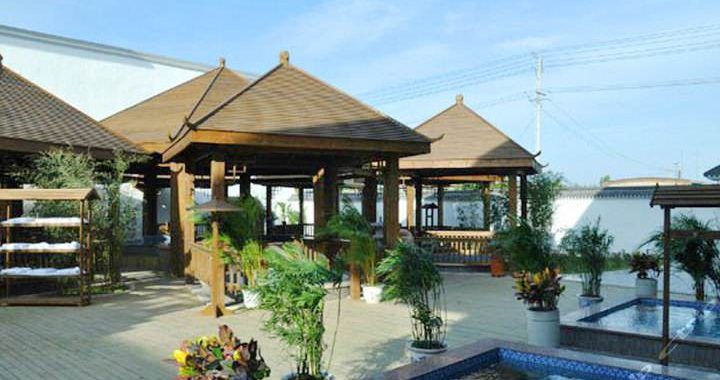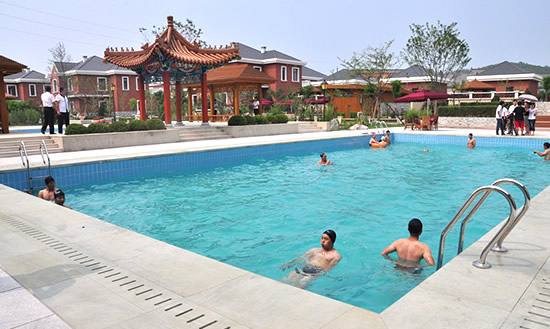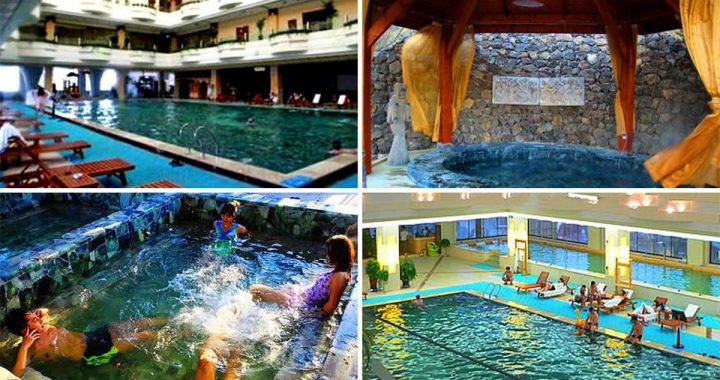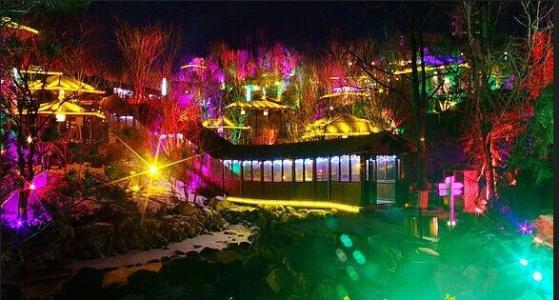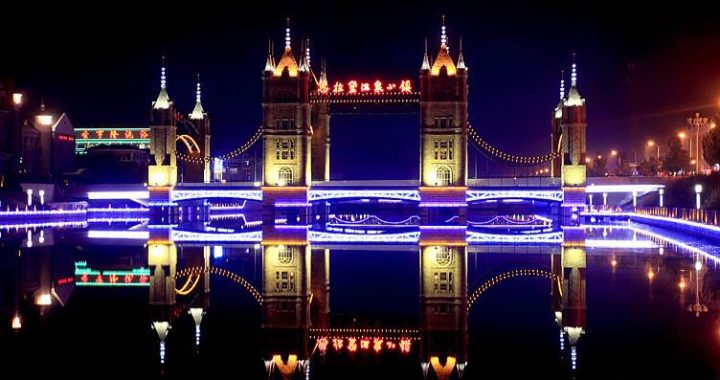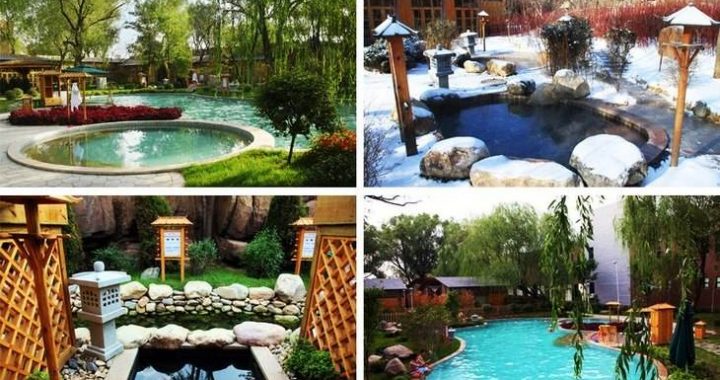Xiongyue Hot Spring Resort
5 min readBathing as Culture
In Western culture, the most famous of all bathing cultures was the Romans. No upper echelon Roman would build a house without having their own bathing quarters. This did not however supersede the near obsession with public baths the Romans had. In a visit to any modern city in Europe,a traveler is almost always directed to the ancient ruins of Roman baths. Visiting a bathhouse to a Roman was a sacred ritual and today you can see the remains of hot baths, cold baths and mid-temperature baths. Not unlike the saunas in Chinaand resort spas of the West, additional amenities included massage services, food, exercise and fitness areas and more in the Roman baths thousands of years ago.
Compare that to ancient Asian culture and you can see the similarities. Bathing in Japan, most specifically soaking in the hot springs, can be traced back to antiquity as well. As Japan is a hot bed of volcanic activity the same as Liaoning Province, the natural hot springs on offer were quickly put to good use and the trend for bathing became common place. In Japan, public bathhouses are now inherent to their culture. Through the ages and up to today, saunas and public bathhouses in China are just as common place and have been the setting for social interaction much like in the times of the Romans.
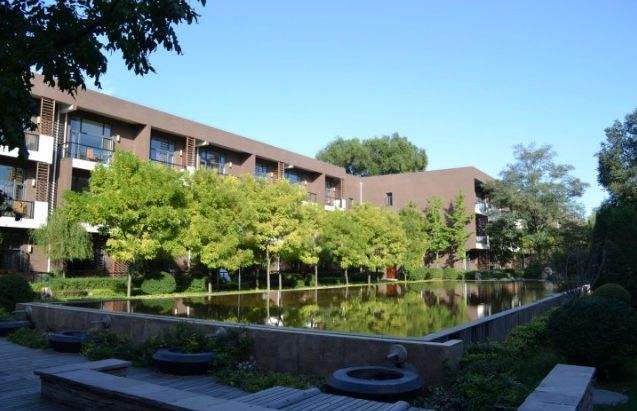
The Great Sage Confucius is even believed to have weighed in on the subject of bathing via an engraving on an ancient stone tub that channels his philosophy by stating,”If you can one day renovate yourself, do so from day to day.”Diving further into Confucian thought and connecting directly to the mysterious oracle bones of ancient China, thepictogram ju(a depiction of a bather) found inscribed on one of these bones has been attributed to Confucius. Purification through bathing would precede many of the sacrifices, ceremonies and assorted rites of the Confucian philosophy as well. It appears that a good soak in the tub took on more than just a washing of the body, it could take you to a metaphysical plane.
The concept of physical and mental cleanliness seeps into the bathing culture of both Europe and Asia. In Europe, cleanliness was a sign of high status as bathing was often a leisurely undertaking that exuded an air of refinement. Some of the natural water sources even went so far as to take on mystical proportions both in their existence and formation.
Perhaps the most famous of these European magic waters can be found in France at the Grotto of Massabielle in the Sanctuary of Our Lady of Lourdes. Here an apparition believed to be the Holy Virgin Mary commanded pilgrims to drink and bathe in the water to miraculously be healed.
In China there are less miraculous inclinations to water, but water has served as the coreof many traditions, beliefs and even inventions. Water is seen as a symbol of time and many of the early Chinese timekeeping instruments involved water. The Chinese magnetic compass utilized a needle floating in a bowl of water. The concept of feng shui specifically deals with the proximity of tombs and buildings to water-shui means water in Chinese. The collected writings known as Shui jing zhu or Commentary on the Waterways Classic, is a detailed account of the known and believed mystical sources and geography of some of the water systems of China, serving as an early documentation of lakes, rivers, pools and of course hot springs.
In Chinese mysticism water is a gift from the spiritual dimension and flows between Heaven and Earth. Nowhere does water take on more fantastical properties than its connections to one of the great symbols of China, the dragon. In ancient times dragons were the rulers or guardians of rivers, seas and waterfalls. The four Dragon Kings of Chinese literature, most discussed in the book Journey to the West, each represent the four largest bodies of water in ancient China. Many water parks, hot springs and spas have dragon motifs in their architecture today, pulling from the ancient tradition of building temples to the dragon.

One of the more salacious legends,yet rather tame by today’s standards,associated directly to the hot springs of China,is of the love affair forged at Huaqing Pool near the city of Xi’an.As many tragic love stories go,the beauty of a single woman had the power to bring down an empire.Emperor Xuanzong of the Tang Dynasty,who enjoyed the hot springs found at the mystical Lishan Mountain,would often take his imperial concubine Yang Yuhuan together with him to bathe in the waters.Upon seeing her beauty in the waters forthe first time his infatuation got the better of him and a deep love affair was born.The legend supposes that this love affair even lead to the downfall of the Tang Dynasty.From a more academic approach,the properties of water took up a prominent portion of the Ben cao gang mu,or Compendium of Materis Medica,from ancient China.This 53-volume collection of all things medical,from drug description to the technical aspects ofmedicine,is a triumph of the Ming Dynasty.The collection includes over 1,000 illustration and diagrams,exhaustive lists of herbs and their usage and over 11,000 prescriptions for common illnesses.
When discussing water specifically,the Compendium is very detailed.Not only for consumption of different types of water but also in regards to bathing,it lists concepts about water not often thought about in Western therapeutic circles.Hot spring water is specifically mentioned and detailed but other types also find mention.For example,dew water that has been collected in autumn is good for the lungs and dew that is collected from flowers can be used for beauty treatments.Along this same path tea made from collected dew water is also a highly-prized concoction.
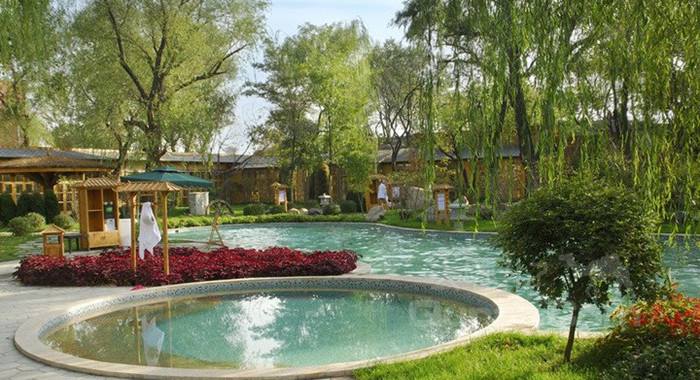
Other water-themed prescriptions are included in great detail.Frost water which due to its”cold nature”is good for a hangover or heat rashes.Rain water is good for getting rid of parasites.Well water is a good combatant against diarrhea.River water,that is flowing upstream specifically,is good for a sore throat.Sea water,thought not acceptable for drinking of course,is good for an itch-relieving bath.Rice steam,an addition that only goes to show the depth of study put into the Compendium,is good for lubricating your skins-an ancient Chinese facial if you will.
China,just as her European counterpart,has a deep history and connection to water.
Water is a life source and bathing serves to purify.The ritual of bathing is not only necessary to health but as a means of social engagement.The natural hot springs,with their luxurious waters of legend and scientific benefits,have been enjoyed throughout the ages.
